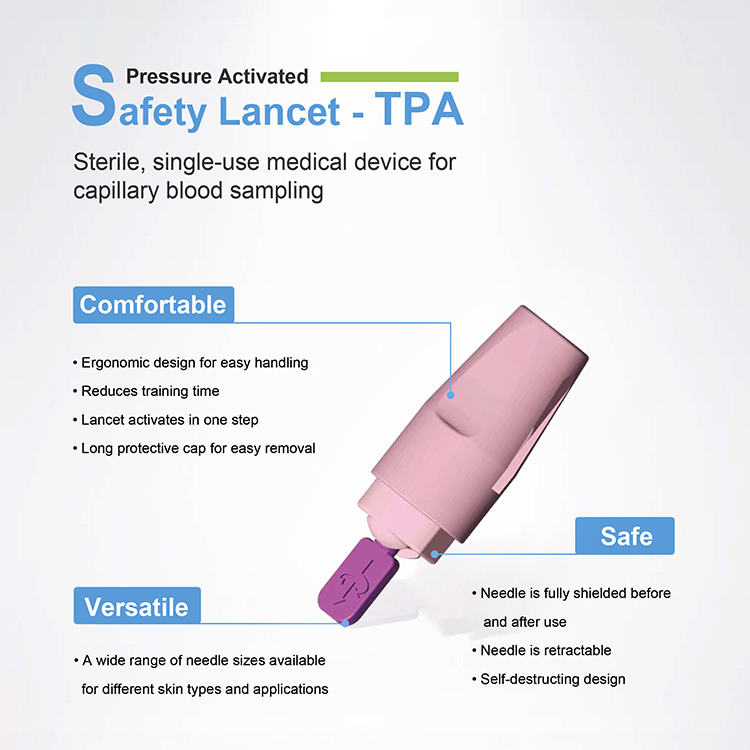Nov . 18, 2024 07:18 Back to list
buy occult blood in stool supplier
Understanding the Supply of Occult Blood Tests in Stool A Deeper Dive
In the ever-evolving field of medical diagnostics, testing for occult blood in the stool presents a critical tool for early detection of gastrointestinal issues, predominantly colorectal cancer. The phrase buy occult blood in stool supplier brings to the forefront the necessity of understanding both the products available for testing and the suppliers who provide these essential services to laboratories and healthcare providers.
What is Occult Blood Testing?
Occult blood testing refers to the detection of hidden blood in the stool that isn't visible to the naked eye. This blood can be an indication of various gastrointestinal conditions, such as polyps, inflammatory bowel disease, or even malignancies. The most commonly used tests include the Fecal Occult Blood Test (FOBT) and the Fecal Immunochemical Test (FIT). These tests are non-invasive, making them an attractive option for routine screening, particularly in individuals aged 45 and older, as recommended by several health organizations.
The Importance of Reliable Testing
Detecting occult blood early can dramatically alter the prognosis for patients. When diagnosed early, conditions like colorectal cancer can often be treated effectively, increasing survival rates. Therefore, suppliers of these testing kits play a vital role in the healthcare continuum. Quality and reliability are paramount, as false positives or negatives can lead to unnecessary anxiety, additional testing, or missed opportunities for early intervention.
Finding a Quality Supplier
When searching for buy occult blood in stool supplier, healthcare providers should prioritize a few key elements
1. Certification and Compliance Suppliers should comply with regulatory standards such as ISO certification and the FDA’s guidelines, ensuring their products meet established safety and efficacy benchmarks.
buy occult blood in stool supplier

2. Product Range A reliable supplier will offer a range of occult blood testing products, including FOBTs and FITs, catering to different needs and specifications of various healthcare settings.
3. Reputation Investigate supplier reviews and ratings. Established suppliers often have testimonials from other healthcare providers attesting to the reliability of their products.
4. Customer Support Quality suppliers provide excellent customer service, assisting healthcare providers with troubleshooting, training, and product information.
5. Cost-Effectiveness While price shouldn’t be the only consideration, it is an essential factor. Comparing costs among various suppliers while ensuring quality standards can assist healthcare providers in making budget-conscious decisions.
Trends in Occult Blood Testing
Recent advancements in technology have led to improvements in the accuracy and ease of use of occult blood tests. Some manufacturers are now integrating digital technologies, such as mobile applications and data analytics, that facilitate user-friendly interpretation of results and tracking patient outcomes. Moreover, an increasing emphasis on preventive healthcare has resulted in a surge in demand for at-home testing kits, making accessibility a greater concern.
As the global population ages and health consciousness rises, the demand for occult blood screening is likely to expand. Suppliers must be prepared to meet this demand by ensuring they have adequate stock and that their products are up-to-date with the latest research and recommendations.
Conclusion
In summary, the quest to buy occult blood in stool supplier encapsulates a broader conversation about the critical role of screening in maintaining public health. The ability to detect hidden blood in stools can serve as a gateway to preventative healthcare, ultimately leading to better patient outcomes. As healthcare providers seek reliable suppliers, it is essential to focus on quality, reputation, and innovation in the testing products they choose. By doing so, they not only enhance their diagnostic capabilities but also contribute significantly to the proactive management of gastrointestinal health across their patient populations. The partnership between healthcare providers and suppliers in this domain is not merely transactional; it is a collaborative effort that holds the potential to save lives through early detection and intervention.
-
Highly Accurate hCG Pregnancy Test Strips - 5 Min Results
NewsAug.02,2025
-
Premium Empty ABS Plastic Cassettes: Durable & Lightweight Storage
NewsAug.01,2025
-
Accurate Cocaine (Coc) Rapid Test Kit | Fast & Reliable Detection
NewsJul.31,2025
-
Accurate HCG Pregnancy Test Strips | Fast Home Use Kit
NewsJul.31,2025
-
Reliable Early Pregnancy Test Kit Supplier - Multi Plastic Cassette Options
NewsJul.30,2025
-
Transferrin Rapid Test Cassette – Reliable Tumor Marker Detection
NewsJul.29,2025

